15 start with S start with S

A radical abolitionist and early feminist, Francis George Shaw (1809–1882) was a prominent figure in American reform and intellectual circles for five decades. He rejected capitalism in favor of a popular utopian socialist movement; during the Civil War and Reconstruction, he applied his radical principles to the Northern war effort and to freedmen’s organizations.
A partnership with Henry George in the late 1870s provided an international audience for Shaw’s alternative vision of society. Seeking the One Great Remedy is the biography of this remarkable and influential man. In compelling detail, author Lorien Foote depicts the many aspects and exploits of the Shaw family. Their activities provide a perspective on the course of American reform that calls into question previous interpretations of the reform movement of this period.
Francis George Shaw is perhaps best known as the father of Robert Gould Shaw, subject of the movie Glory. Francis and his wife, Sarah Blake Shaw, achieved considerable notoriety for their activities, including their effort to shape public opinion during the Civil War. Turning the tragic death of their son into a public relations and propaganda triumph, they altered Northern opinion about the war and shaped a historical perception of the famous Massachusetts Fifty-fourth that continues today.
Seeking the One Great Remedy argues that social radicalism was pervasive among elite reformers before and after the Civil War and finds in the dramatic story of Francis George Shaw a model of that cause.
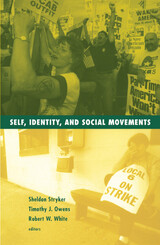
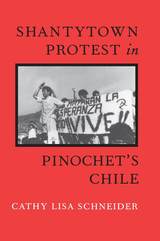
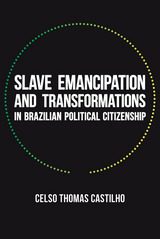
Winner, 2018 AHA/CLAH Dean Prize (best book on Brazilian History)
Celso Thomas Castilho offers original perspectives on the political upheaval surrounding the process of slave emancipation in postcolonial Brazil. He shows how the abolition debates in Pernambuco transformed the practices of political citizenship and marked the first instance of a mass national political mobilization. In addition, he presents new findings on the scope and scale of the opposing abolitionist and sugar planters’ mobilizations in the Brazilian northeast. The book highlights the extensive interactions between enslaved and free people in the construction of abolitionism, and reveals how Brazil’s first social movement reinvented discourses about race and nation, leading to the passage of the abolition law in 1888. It also documents the previously ignored counter-mobilizations led by the landed elite, who saw the rise of abolitionism as a political contestation and threat to their livelihood.
Overall, this study illuminates how disputes over control of emancipation also entailed disputes over the boundaries of the political arena and connects the history of abolition to the history of Brazilian democracy. It offers fresh perspectives on Brazilian political history and on Brazil’s place within comparative discussions on slavery and emancipation.
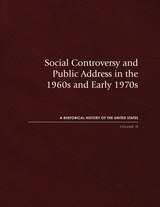
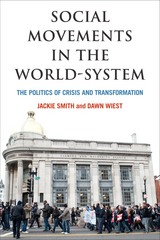

Sztompka connects the interpretations of such collective activity to a wider grasp of the nature of social action. The result is a comprehensive and original theory of social change which focuses on the self-transforming influence on society of its members' striving for freedom, autonomy, and self-fulfillment. He develops his theory by means of a general concept of "social becoming," the roots of which he traces to the early romantic and humanist work of Karl Marx and his followers and to two influential sociological schools of today, the theory of agency and historical sociology.
Sztompka situates his theory midway between the rigid determinism of social totalities and the unbridled voluntarism of free individuals. Social change, he demonstrates, can be understood neither as the outcome of individual actions taken alone nor as structurally determined actions. Instead, he confers upon social organizations and movements a "self-transcending" quality: they express human agency yet, by virtue of their active character, are quite often able to achieve unpredictable outcomes.
Throughout his analysis of social movements and revolutions in history, Sztompka emphasizes the dynamics of spontaneous social change generated from below—a theoretical testimony to the rapid and fundamental social change in Eastern Europe in recent history. Against the fashions of postmodernist malaise, boredom, and disenchantment, his theory of social becoming expresses the possibility of emancipation, of change leading to positive gains. His work registers a belief in progress, not inevitably gained, but its attainment fully dependent upon the creativity and optimism of an active citizenry.

In the 1960s, the cooperative networks of food stores, restaurants, bakeries, bookstores, and housing alternatives were part counterculture, part social experiment, part economic utopia, and part revolutionary political statement. The co-ops gave activists a place where they could both express themselves and accomplish at least some small-scale changes. By the mid-1970s, dozens of food co-ops and other consumer- and work-owned enterprises were operating throughout the Twin Cities, and an alternative economic network - with a People's Warehouse at its hub - was beginning to transform the economic landscape of the metropolitan Minneapolis-St. Paul area.
However, these co-op activists could not always agree among themselves on their goals. Craig Cox, a journalist who was active in the co-op movement, here provides the first book to look at food co-ops during the 1960s and 1970s. He presents a dramatic story of hope and conflict within the Minneapolis network, one of the largest co-op structures in the country. His "view from the front" of the "Co-op War" that ensued between those who wanted personal liberation through the movement and those who wanted a working-class revolution challenges us to re-thing possiblities for social and political change. Cox provides not a cynical portrait of sixties idealism, but a moving insight into an era when anything seemed possible.


Contributors: Paul Almeida, Texas A&M U; Elizabeth Borland, College of New Jersey; Daniel B. Cornfield, Vanderbilt U; Catherine Corrigall-Brown, U of British Columbia; Mario Diani, U of Trento; Katja M. Guenther, UC Riverside; Larry Isaac, Vanderbilt U; Isobel Lindsay, Biggar, Scotland; David S. Meyer, UC Irvine; Brian Obach, SUNY New Paltz; Dina G. Okamoto, UC Davis; Christine Petit, UC Riverside; Derrick Purdue, U of the West of England; Ellen Reese, UC Riverside; Benita Roth, SUNY Binghamton; Suzanne Staggenborg, U of Pittsburgh; Dawn Wiest, U of Memphis.
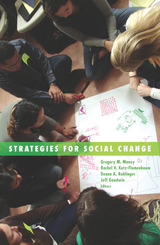
The theory and practice of social movements come together in strategy—whether, why, and how people can realize their visions of another world by acting together. Strategies for Social Change offers a concise definition of strategy and a framework for differentiating between strategies. Specific chapters address microlevel decision-making processes and creativity, coalition building in Northern Ireland, nonviolent strategies for challenging repressive regimes, identity politics, GLBT rights, the Christian right in Canada and the United States, land struggles in Brazil and India, movement-media publicity, and corporate social movement organizations.
Contributors: Jessica Ayo Alabi, Orange Coast College; Kenneth T. Andrews, U of North Carolina at Chapel Hill; Anna-Liisa Aunio, U of Montreal; Linda Blozie; Tina Fetner, McMaster U; James M. Jasper, CUNY; Karen Jeffreys; David S. Meyer, U of California, Irvine; Sharon Erickson Nepstad, U of New Mexico; Francesca Polletta, U of California, Irvine; Belinda Robnett, U of California, Irvine; Charlotte Ryan, U of Massachusetts–Lowell; Carrie Sanders, Wilfrid Laurier U; Kurt Schock, Rutgers U; Jackie Smith, U of Pittsburgh; Suzanne Staggenborg, U of Pittsburgh; Stellan Vinthagen, U West, Sweden; Nancy Whittier, Smith College.
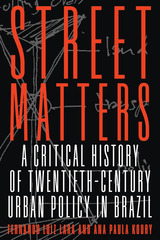
Street Matters links urban policy and planning with street protests in Brazil. It begins with the 2013 demonstrations that ostensibly began over public transportation fare increases but quickly grew to address larger questions of inequality. This inequality is physically manifested across Brazil, most visibly in its sprawling urban favelas. The authors propose an understanding of the social and spatial dynamics at play that is based on property, labor, and security. They stitch together the history of plans for urban space with the popular protests that Brazilians organized to fight for property and land. They embed the history of civil society within the history of urban planning and its institutionalization to show how urban and regional planning played a key role in the management of the social conflicts surrounding land ownership. If urban and regional planning at times benefited the expansion of civil rights, it also often worked on behalf of class exploitation, deepening spatial inequalities and conflicts embedded in different city spaces.


State and Capital reign over the Age of Sorrow. We face inequality, pandemics, ethnocide, climate crisis, and mass extinction. Our desire for security and power governs us as State. Our desire for possessions governs us as Capital. Our desires imprison and rule us beings as Unbeing. Yet, from Nagaland to New Zealand, Bhutan to Bolivia, a second wave of anti-colonial revolutions has begun. Arising from assemblies of humans and other-than-humans, these revolutions replace possessive individualism with non-exploitative interdependence. Naga elders, Bhutanese herders and other indigenous communities, feminists, poets, seers, yaks, cranes, vultures, and fungi haunt this pamphlet. The original Subaltern Studies narrated how Indian peasant communities destroyed the British empire. Subaltern Studies 2.0 prophesies the multi-being demos and liberates Being from Unbeing. Re-kin, Re-nomad, Re-animate, Re-wild! The Animist Revolution has come.
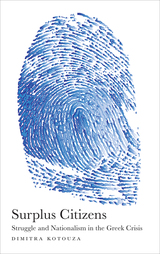
READERS
Browse our collection.
PUBLISHERS
See BiblioVault's publisher services.
STUDENT SERVICES
Files for college accessibility offices.
UChicago Accessibility Resources
home | accessibility | search | about | contact us
BiblioVault ® 2001 - 2024
The University of Chicago Press









